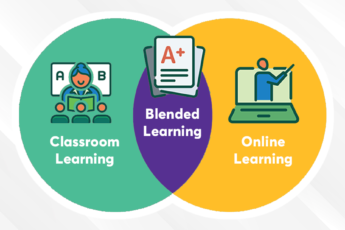5 Tips To Make Online Teaching Easier – And More Enjoyable

A year ago, the pandemic drove education online, with educational institutions embracing online classes and digital learning in all its forms to deliver learning to their students. Schools and states adopted different means of reaching out to students; some sent home learning materials, others delivered learning via common messaging apps.
Education moved online, but children across various levels and ages in India continue to experience learning loss, particularly in early childhood education. A survey showed most parents are very worried about their young children losing out on essential development in these early years, and thus they are in favour of online schooling. 80% of parents surveyed said online preschooling delivered clear learning outcomes, and 75% of these parents would recommend online learning to their friends and families.
However, remote learning poses challenges even in suitable settings. Add to that a class full of fidgety young learners – those who choose to come at all – and this type of learning becomes harder to sustain.
To be successful, remote teaching and instruction needs to follow similar ideas as regular instruction: clarity, review, and checking for comprehension. At present, the guidelines to conduct online learning are as yet a work in progress. Even so, based on their experience this past year, multiple early education experts and educators have offered pointers on ways to help remote education be as effective as possible.
1) Changing The Mindset (of teachers, children, AND parents)
The very first challenge to online learning is getting children to show up for classes. With several preschools closing permanently, those still active report almost an 80% reduction in enrollment for the school year 2020-21. Parents who were once convinced about the importance of early learning might give preschool a miss now.
What is needed is a strong reminder about the priority of early education, especially for parents. Plus, to effectively guide this conversation, teachers and caregivers must first understand the nature and science of early learning and how it impacts a child’s future.
Once in the online classroom, teachers need to consider the socio-cultural circumstances of each student as they deliver instructions; they need to develop a structure, objectives, and teaching plans as per this. Establishing a routine and schedule can do wonders for children’s engagement. They learn to expect certain activities and games at certain times, and they feel confident because they know exactly what comes next.
Initiatives across Maharashtra, Odisha, and Chattisgarh have shown that dedicated efforts by governments, schools, educators, and Anganwadi workers can stave off some ill-effects of learning loss in early childhood. We can take inspiration from these efforts and replicate the same in our classrooms.
2) Remote Relationship-Building
Relationships are the bedrock of society, and, in early childhood education, are the basis upon which socio-emotional behaviour develops. Although physical bonding is ill-advised at the moment, educators can devise strategies that enhance bonding in online classes.
For a social connect, teachers can structure lesson plans that involve the formation of groups, as much as the curriculum allows. Children can be paired up for games and activities, or even simply to lend a helping hand to one another.
To further enhance this social emotional development, it is recommended to connect with the families too, and share a child’s achievements via weekly messages or a phone call. Rotate this responsibility among teachers so one person is not bearing all the burden.
3) Let Simplicity Guide Your Lesson Structure
Online learning offers reduced opportunities to gauge how instructions have been received by students. This makes simple instructions even more crucial to the classroom. Keep the language direct, the instructions uncomplicated, the explanations brief, and the expectations clear.
For reduced hassle, stick to simplicity in all decisions, whether they are logistical (which edtech app is the best to use) or substantive (is the new learning material clear enough).
4) Make Learning Interactive And Engaging
Student engagement is a common requirement in any early learning curriculum, but planning for such engagement is less so.
Just as in a physical classroom, young children need opportunities to develop all the foundational skills — motor skills, cognitive skills, reasoning, socio-emotional skills, foundational literacy and numeracy — in online classrooms too. Avoid conducting simpler reading and listening exercises; actively pepper your learning modules with quizzes, puzzles, and interactive question-and-answer sessions. These sessions act as review lessons, helping children retain their learning. Some teachers across India have taken the initiative and started recording small lessons before class. They then pause these at key moments to incorporate mini-games and play-based activities for higher engagement.
5) Humanise The Digital Space
Child-friendly spaces always have a colourful and fun theme, so why should an online classroom be any different?
If you use an online platform like ZOOM or Skype to teach, you can check if the background is customisable. Or, you can simply add a few little toys, colourful hand paintings, and even letter and number cutouts for a ‘classroom’ feel. This can be customised as per the age of your learners. Invite questions about the children’s background too (in case of live video lessons), and involve parents in creating fun learning spaces for children, so they exhibit more enthusiasm for learning.
Lessons via chat-messaging services can be enlivened by the use of emojis; recorded lessons can have some engaging anecdotes to add humour; physical resources for children can be repurposed (read: painted or reprinted) to add in pops of colour.
Are you a parent? If so, here are 4 tips that can help you balance schooling at home with working from home.
While incorporating each idea mentioned here might be challenging, bearing them in mind is prudent. As we learn more about how online learning works, these lessons can help us reach children in every corner of India, creating a truly literate future for our country.
See how Square Panda India can help you build a robust ECCE ecosystem in your state, district, or school: ecce.squarepanda.in




Leave a Comment